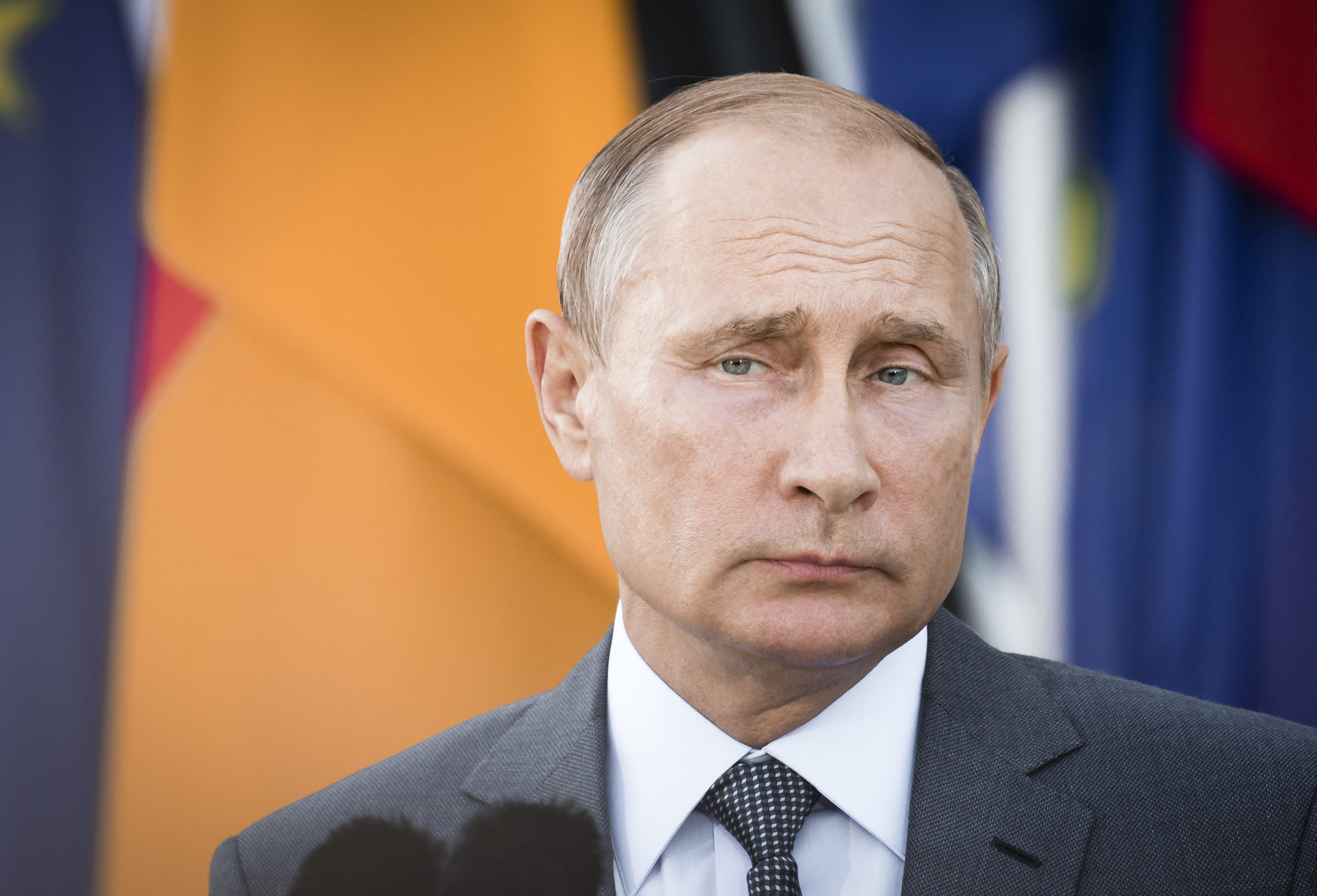What Putin’s actions during the Russo-Ukrainian, Russo-Georgian, and Second Chechen war tell us about the threats he poses to Democracy worldwide

Introduction
Last month, amidst an address on the current socio-economic conditions across Russia, Vladimir Putin, Russia’s sitting president, called for a “self-cleaning of society,” in response to the growing sum of an estimated 200,000 emigrants that have fled Russia this year. The stifling numbers behind current emigration efforts in Russia may be directly attributed to Putin’s intentions of implementing antidemocratic practices both domestically and in the sovereign nation of Ukraine.
Russian emigrants that have managed to break free from Putin’s authoritarian grip are seeking refuge in democratic states abroad, but not without being followed by the threat of Putin’s efforts to undermine democracy.
While Putin’s alleged war crimes continue to rain across Ukrainian skies, familiar patterns of democratic erosion emerge before the public eye. Since his appointment under President Boris Yeltsin in 1999, Putin has offensively coordinated attacks on a multitude of regions home to assumed opposition. Due to Putin’s use of trauma in times of crises, he has fabricated heroic actions to justify his alleged war crimes that have resulted in a loss of hundreds of thousands of lives, and ultimately submerged Russian democratic institutions beyond rescue. What remains is an uninformed public and illegitimate political tactics.
Relying on the cases of the Russo-Ukrainian War, Second Chechen War, and Russo-Georgian War, this article draws parallels between the antidemocratic elements of Putin’s past and present tendencies abroad, and analyzes the danger to global democratic welfare that these authoritarian actions of strengthening vertical power present.
Background
Russo-Ukrainian War
In order to analyze the threat to democracy that Putin’s actions present, one must understand Putin’s underlying motives behind the egregious attacks that Putin has claimed responsibility for.
When considering the Russo Ukrainian War, Putin is attempting to maintain Ukraine’s identity as a buffer state between Russia and neighboring North Atlantic Treaty Organization (NATO) signatories. Several years ago, Putin’s frustrations boiled over, resulting in Russia’s annexation of the Crimean Peninsula in 2014. Since then, Ukraine has continued to strengthen its relationship with western democracies, an allegiance Putin sees as a grave threat to Russia’s influence on the international stage.
Russo-Georgian War
In 2008, Kosovo, once under Russian influence, ratified a western-backed declaration of independence. Putin, having expressed opposition to the declaration of independence, viewed this as a grave threat and therefore invaded Georgia to assert Russia’s influence over the greater Balkan region. Today, roughly 20 percent of Georgia belongs to the Russian military, which speaks to the permanency of Putin’s various offensive attacks.
Second Chechen War
Following notably biased statements made by Russian authorities that placed the fault of various bombings throughout major Russian cities onto the minority, heavily muslim, Chechen community, Putin launched assaults on the Chechens, resulting in an estimated 80,000 lives lost. Controversy surrounding the validity of the Russian government’s statements that placed blame of bombings on Chechen people continues to circulate amongst democratic discourse (Levitsky and Ziblatt, 96). By attempting to villanize a minority, muslim, identity group, Putin is able to further his goal of cultural imperialism, in other words correcting the demographics of Russia to reflect the mold of a citizen Putin maintains.
Analysis- Authoritarian Actions
Intentionally Fabricated Crises to Justify Manipulation of Democratic Institutions and Norms
Russian-broadcasted media coverage on each above mentioned case relied on misinformation instated by Putin’s administration. Putin has been known for using the media– specifically TV news broadcasts and news magazines– to his advantage. Having famously once said that “contrary to a common perception, mass media is an instrument, rather than an institution,” (Stoner-Weiss), Putin tactically uses media as a method of controlling the public perception of his (commonly antidemocratic) actions. At the Russian News Service radio network, for example, “journalists were told that 50 percent of reports on Russia must be positive,” (Gehlbach, 79).
In relation to the bombings that provoked the Second Chechen War specifically, the public rallied behind Putin’s disguised hero complex, and fell ill to his heavily broadcasted false promises of taking rightful action to guarantee national security (Levitsky and Ziblatt, 96). Though not all misinformation media tactics are successful, “enough real information is provided to keep viewers guessing about the line between facts and fiction,” (Gehlbach, 82).
After supposed Chechen terrorists– according to Russian officials– occupied a school in the surrounding town of Beslan, Putin used public fear as an opportunity to dismantle the democratic legal practices guaranteed by the Constitution.
Following the attack in Beslan, Putin declared the following provisions: Governors would no longer be elected, but appointed by Putin himself; Members of the lower house of parliament would no longer be directly elected, as voters may now only cast votes in favor of a political parties, which later fill alloted seats with ranking members; All political parties must re-register; and lastly all proposed legislation must leave a positive impression on a new chamber, personally appointed by Putin, with the goal of filtering bills before they enter the lower house of parliament (Gessen, 209).
By the end of Putin’s alterations of the democratic foundations that Russian democracy relied on, “there remained only one federal-level public official who was directly elected: the president himself,” (Gessen, 210). It was at this time that “the institutions for democracy had been dismantled,” and it was therefore “impossible” to come to their defense. As a result of his success at maintaining status as the only democratically elected official, Putin was able to create an unlevel playing field in Russian politics, ultimately diluting any presence of democratic competition essential to a democracy’s sustainability.
Should Putin’s undetermined success in Ukraine reflect that of his previous attacks on democracy, Ukraine, and therefore the buffer Ukraine serves, will no longer maintain democratic morals, and democracy worldwide will be threatened by an electorally determined authoritarian gilded with the title of president.

0 Comments